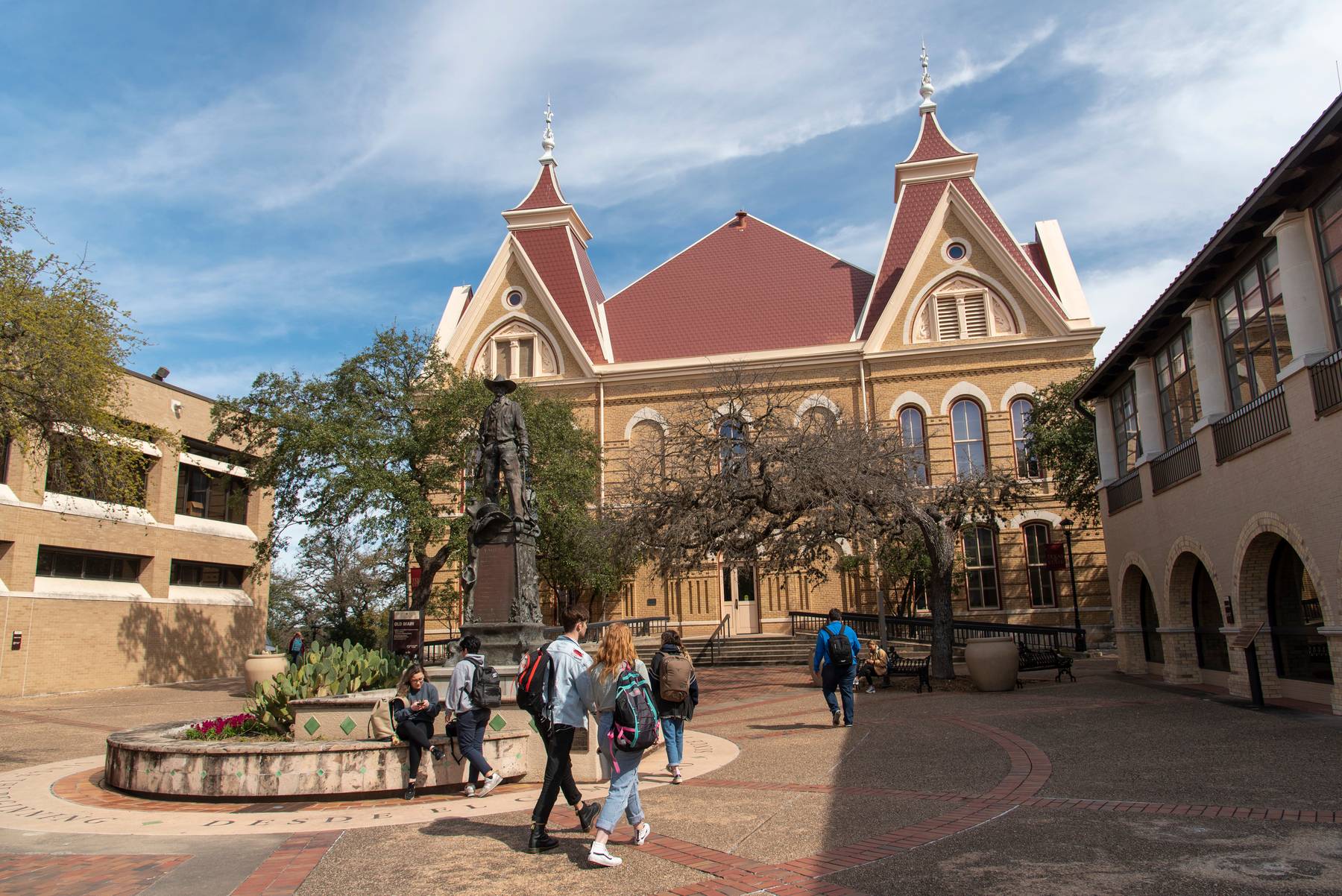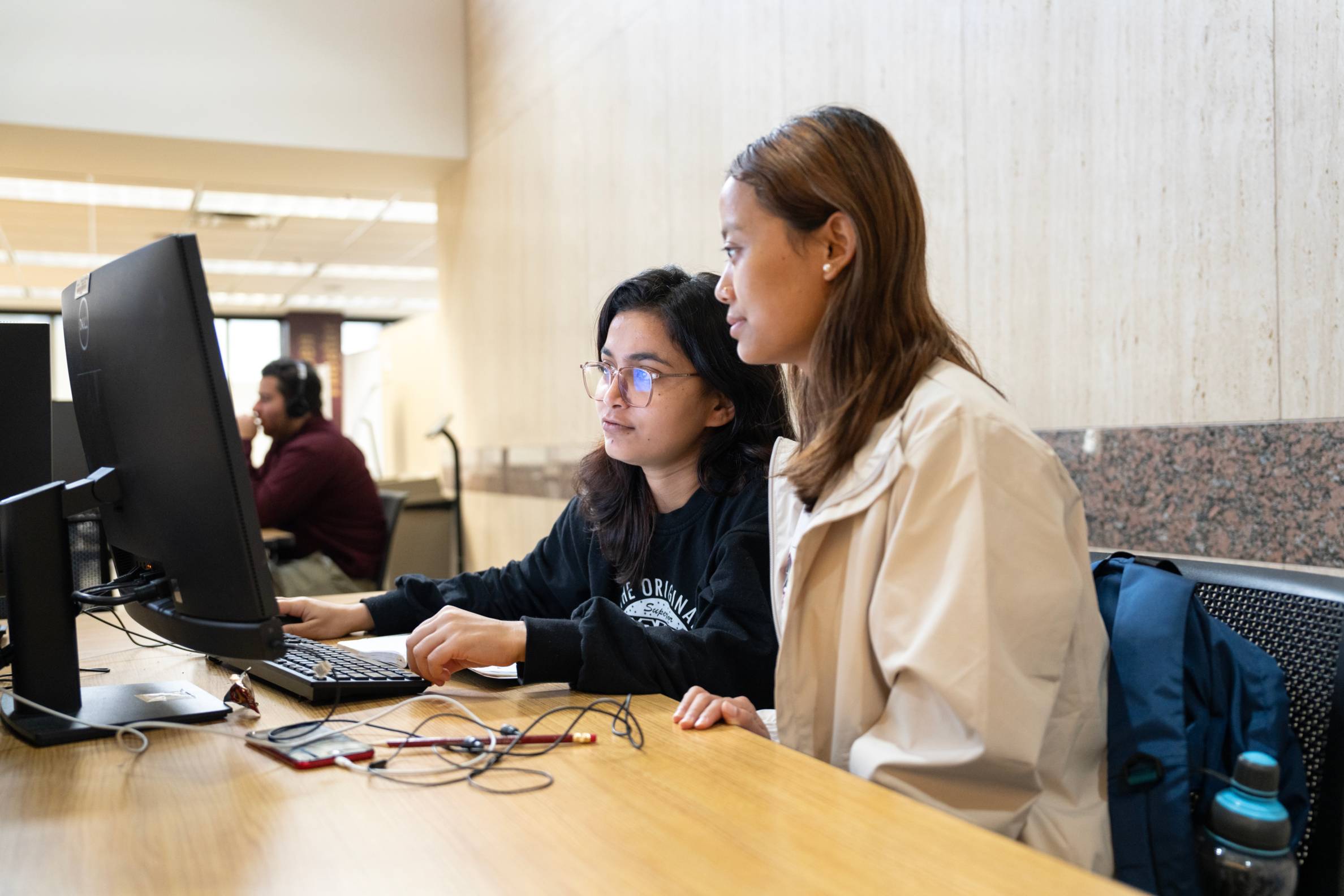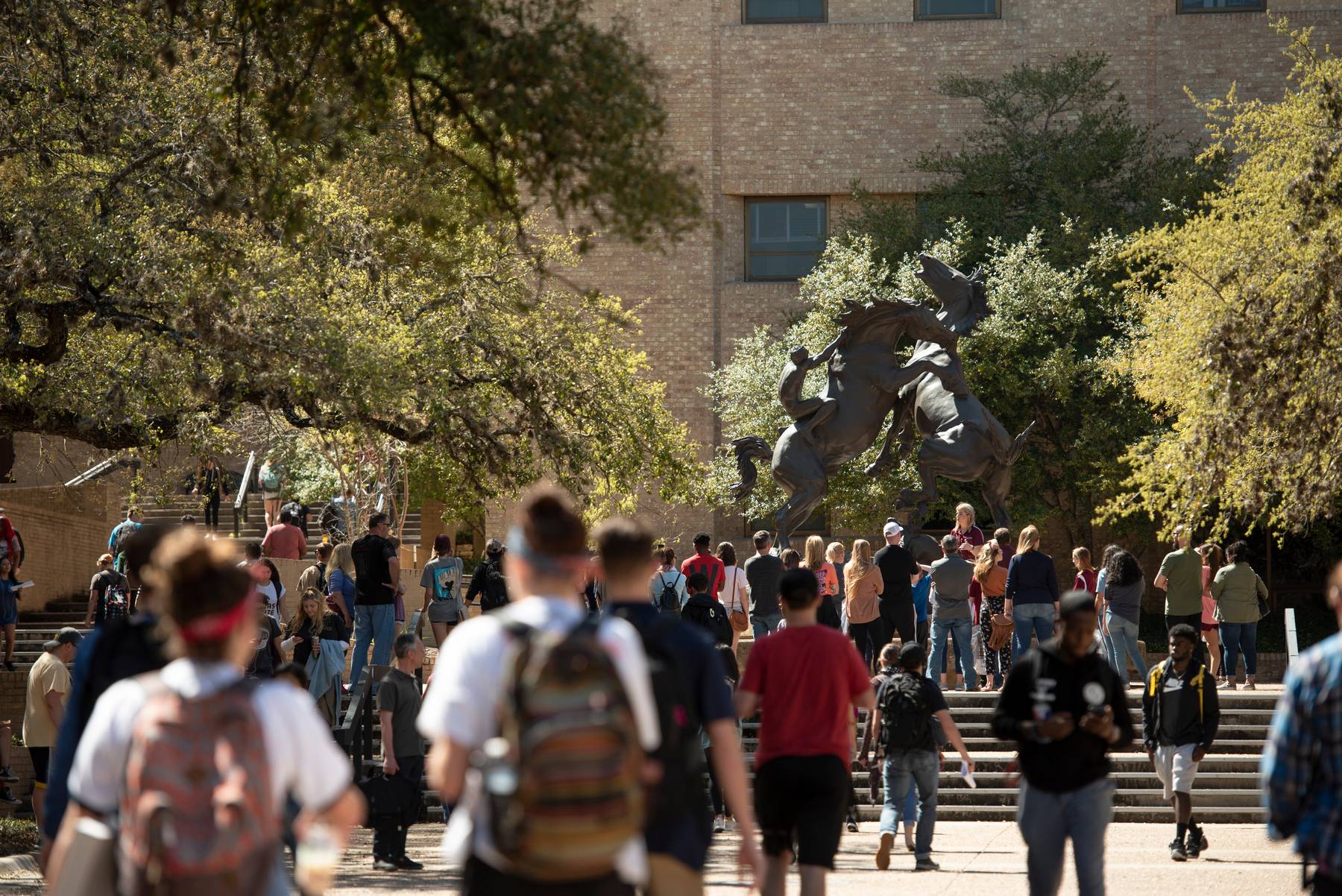Bobcat RISE is Texas State University’s four-year residential inclusive postsecondary education (IPSE) program for students with intellectual and developmental disabilities (ID/DD).
Who We Are
Proudly established in the College of Education, Bobcat RISE serves students with a range of intellectual and developmental disabilities who desire post-secondary education and are ready for independent but supported living on a college campus.
Bobcat RISE admitted the first cohort of five students in the Fall 2023 cohort with subsequent fall cohorts offering a total of ten enrollment opportunities.


Bobcat RISE
Bobcat RISE (Resilience, Independence, Self-Determination, Empowerment) is a student-centered program embodying Texas State University's commitment to excellence and innovation in teaching, research, creative expression, and service. RISE expands the breadth of institutional inclusion by welcoming non-traditional students with intellectual and developmental disabilities (ID/DD) and empowering them to develop to their highest potential, govern their own lives, and participate fully and freely in the community as citizens of Texas, the nation, and the world.
Information Session - October 10
Join us October 10 at 2 pm to learn all about Texas State University's inclusive postsecondary education program for students with intellectual and developmental disabilities, Bobcat RISE.

Application Timeline
- Applications will close December 5, 2025
- Applicants will be notified of the invitation to attend an on-campus interview by January 31, 2026
- On-campus Interviews will take place in February 2026
Please contact our office with any questions or concerns regarding the admissions process. Via email or call 512-408-8586
-
Estimated Fees
Bobcat RISE students can expect to pay the same university, housing, and meal costs that typical Texas State University students pay. Tuition fees are reduced for Bobcat RISE students, and there is an additional program fee of $8,500 per semester. At this time, Bobcat RISE is not a CTP, and students are not eligible for FAFSA, workforce funding, or any other financial support. We offer one full Bobcat RISE scholarship (fees and tuition only) to one student per cohort. Please check back to see if additional funding opportunities become available.
- Fee - Recreational sports $94
- Fee - Student Center $100
- Fee - Bus $95
- Fee- Athletics Fee $66
- Fee - Institutional Srvcs UG $146.16
- Fee - Student Service $30
- Fee - BookSmart (optional) $249
- Extension Tuition - $922.08
- Fee - Bobcat RISE $8,500
- Housing (approx) $4,500
- Meal Plan (varies) $1,500-$2,300
Bobcat RISE Admission Criteria
Click the drop-down button below to learn more.
-
Admission criteria includes the following areas:
- An individual between the ages of 18 and 23 (must still be 23 on the first day of class). Transfer students are eligible to enter through the age of 28.
- Both in-state and out-of-students are eligible to apply
- Has a documented disability diagnosis of an intellectual and/or developmental disability (ID/DD)
- Serves as their own full legal guardian. Individuals with ID/DD who have a supported decision-making agreement are also encouraged to apply and decisions will be made on an individual basis.
- Completed high school with or without a high school diploma, who received services through an Individualized Education Plan (IEP), been served by IDEA, or completed an alternate assessment portfolio. Students should no longer receive support from their high school at the start of the BOBCAT RISE program
- Independently desires to attend college as well as achieve greater independence and future employment
- Functions independently (e.g., navigate campus on their own or with appropriate support) and participate in semester-long workshops and seminars that last between 90 minutes and 2 hours
- Has basic functional skills in reading, writing, and mathematics with or without assistive technology
- Willing and able to live communally and independently with other TXST or Bobcat RISE students in campus housing during the program
- Displays skills to manage stress and adapt to change or the ability to learn such coping skills with minimal disruption to others. Exhibits responsible and socially adaptive behavior with minimal supervision and appropriate support.
- Has the sufficient emotional and independent ability to participate in all aspects of the Bobcat RISE program and Texas State University
- Demonstrates the ability to accept personal responsibility for actions and maintains respect for self and others and understands and follows all TXST safety and health requirements
- Has limited or no history of disruptive or aggressive behavior.
- Independently self-administers and manages medication, specialized dietary and/or medical needs.
- Demonstrates the potential to successfully achieve personal and program goals within the context of the Bobcat RISE program and setting.
In the event that the program has openings, additional candidates are welcome to apply outside the typical application period. Applications submitted during additional open periods will be saved for future application cycles.
Want to learn more?
This Hillviews Magazine feature highlights the impact of Bobcat RISE.
Bobcat Rise Information Session
Check out this video to learn more about Texas State University's inclusive postsecondary education program for students with intellectual and developmental disabilities, Bobcat RISE, during this informative hour with the Program Director and prospective applicants.
Prospective Students
Admitted students have exited high school. At Bobcat RISE, program staff and advisors use person-centered planning to help students to self-select interdisciplinary courses related to their individualized interests and career goals. Enrolled students have options for fully integrated living with other TXST students through a partnership with American Campus Communities.

Funding Partners
Thank you to the H-E-B Community Fund, the Texas Council for Developmental Disabilities, and the May & Stanley Smith Charitable Trust for supporting Bobcat RISE
Visiting Texas State University
In-person Bobcat RISE information sessions will be held during Bobcat Days. Make plans to visit campus and speak with our staff during one of these dates.
Volunteer for Bobcat RISE
We have opportunities for TXST students who want to support Bobcat RISE students in academic and social situations as they integrate into campus life.
Learn more about Bobcat RISE
Want to learn more about the Bobcat RISE program? Our staff is here for you! Please contact us by filling out the form below, and a member of our staff will be in touch with you.

